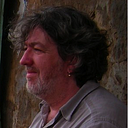Twenty-One Years of Digital Planet on BBC World Service
Aleks Made Us Macarons and They were Delicious!
Early in 2001 I was a freelance journalist, writer and speaker, doing my best to help people understand the internet and how it was transforming the world, and arguing that it should be reshaped to be supportive, humane and regulated to serve public rather than purely private interests. I was writing for The Guardian, The Register and The Times, editing supplements for The New Statesman, and speaking at events around the world. I published pamphlets for the Cooperative Party, advised think tanks and governments on tech policy, and tried to ensure that the people whose lives were most affected by technology both understood it and had a way to influence its development.
I had been appearing regularly on The Big Byte, a radio show on the BBC’s news and sport network Radio 5, where I reported the week’s technology news. The team of presenters and producers included Gareth Jones, Jem Stone, Violet Berlin, Quentin Cooper, producer Neil George, and a young producer called Gareth Mitchell. They were all great to work with and we had an excellent time going out live from a basement studio in Broadcasting House every Sunday lunchtime.
As well as the Big Byte I was regularly invited to be the ‘person who understands tech’ on other shows, like Outlook and You and Yours, and as the net became more important there were more opportunities to sit down with presenters like Sean Rafferty or Jeremy Vine and explain what was going on, or to be a calming voice for one of Rory Cellan-Jones’ packages on the six o’clock news.
So it wasn’t surprising when I was asked if I’d help out with a planned new show for the BBC World Service that was going to focus on technology and its impact on people’s lives rather than breathless reports about the latest shiny toy available in the shops.
Called ‘Go Digital’ it was to be a fairly standard magazine-style show with a regular presenter who would intoduce three or four items each week. They would be a mixture of pre-recorded packages and live interviews, all softened by the presence of a ‘presenter’s friend’ — a studio expert who would comment on each item, chat to the presenter, and add a new perspective. The presenter was to be a very experienced journalist, Tracey Logan and the producer, Julian Siddle, had a great track record.
Before the show started broadcasting the team wanted to make a couple of ‘non-broadcast pilots’ so they could tweak the format and let Tracy get used ot it, and they asked me to be the pretend friend for them both.
The pilots went well, and the first broadcast was set for August 28 th2001, from the old World Service headquarters in Bush House on Strand in the centre of London, a wonderful art deco building that is now part of King’s College, London.
The plan was to have a different expert on each week, so that listeners would get different perspectives and hear different voices, but they asked me if I’d do the first five or six, on a weekly contract, just to let things bed in. Never one to turn down a freelance gig — even if the money was far from generous — and really pleased to be part of a new show on the World Service, whch is in my view the best radio station in the world, I was happy to do a few before they started bringing other people in.
After about three months it became clear that they’d forgotten the plan, as each week I’d be invited back to appear with Tracey. In 2005 she stepped aside as she wanted to do other things that the weekly routine of researching, interviewing, scripwriting and presenting a major technology show made difficult, and Gareth Mitchell, my old friend from the Big Byte days, took over. They kept inviting me on each week, and this week we had a special 21 stanniversary programme, recorded in front of a live audience in the Radio Theatre at Broadcasting House in London.
Of course, a lot has changed since 2001, not least the colour of my hair and beard. In March 2006 ‘Go Digital’ changed its name and format slightly to become ‘Digital Planet. In 2011 we became ‘Click’ in a poorly considered attempt to align the Click TV programme with a very different radio show. A mere eight years later, in May 2019, we reverted to Digital Planet, and we don’t plan to change it again!
After fifteen years of being the main ‘studio expert’, appearing almost every week apart from some specials or holidays, the wonderful and deeply well-informed Ghislaine Boddington joined the team as a commentator in 2016 and we started alternating weeks, and for the last couple of years amazing tech journalist Angelica Mari has been our third regular.
We’ve been on air almost every week, so that’s well over 1000 programmes.
We’ve reported from around the world, travelling widely but also bringing stories from every continent.
And we’ve managed to talk about assistive technologies, accessibility, disaster relief, security, government clampdowns, community projects, affordability, sustainability, education technology, satellites and space, deep sea exploration, autonomous cars and yachts, drones and a lot more — in what we hope has been an inclusive, informative and entertaining way.
It’s been a lot of fun, and I hope we can continue a while longer.
Meanwhile, thanks to everyone — and you can listen to the show here. https://www.bbc.co.uk/programmes/p002w6r2
Originally published at https://astickadogandaboxwithsomethinginit.com.
